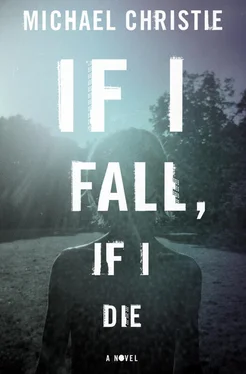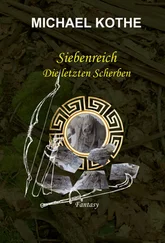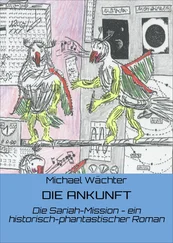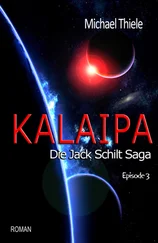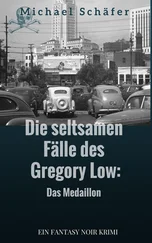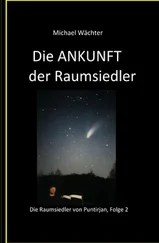“People like the Butler ?” said Will. “That’s what he does, right? Makes grain alcohol? And now Neverclear? And you already know this, but you don’t even stop him?” Only halfway through his coffee, Will already noticed his jaw trembling and thoughts piling in his head, like a thousand people waiting to pass through a narrow exit, and his mouth felt more comfortable moving than at rest. No wonder everyone Outside drinks it, he thought, coffee makes you brave.
“It may not be pretty,” said MacVicar, “but George Butler keeps order down there among all those hobos and miscreants. Man hops off a train or a lakeboat, perpetrates something wicked, hops right back on. How do I trace that? Then there’s our Indian troubles to complicate things, with more and more coming down from the reserves for opportunities we can’t even offer our own sons anymore. So as it stands, George Butler performs a vital function here. Keeps a lid on things. You don’t know this yet, but there is nothing more dangerous than a person with nothing to do.”
“If you won’t find Marcus, then I will,” Will said defiantly. “For starters, I want to make a formal request for a list of all escaped mental patients within a hundred-mile radius.”
“And what are you going to do with that?” asked MacVicar.
“Investigate.”
He let out a long breath. “Careful, Will. I suspect the first name on that list would be yours.” Will threw himself to his feet and started off. “Look,” MacVicar said. “For years I’ve turned a blind eye to what’s been going on over at your place, the irregularity of it, so don’t try my patience. But what worries me most is how boys, even good boys like yourself, can end up in the same places as our society’s less exemplary members.”
“Kinda like my being here?” Will said.
“You know why that is?” MacVicar said, ignoring Will’s jab. “Because kids and bad people have one thing in common: they both prefer to be alone.” With that, MacVicar stood and opened his door. “It’s been a hoot, Will,” he said, “but I have an appointment at two.”
Will looked at the wall clock, which was also a stuffed walleye. “But it’s not even ten?”
The constable took a sip and nodded as he swallowed.
“Oh, and Will,” the constable called out across the reception area. “What about your safety equipment?”
“I don’t wear Helmets anymore,” Will said, clutching his skateboard to his hip. “You can write me a ticket if you want.”
His new life commenced where another had ended.
With the bang of the cable still knitted in his ears, he told the Indian crew to leave or there’d be trouble for them and watched as they walked mutely back to their tents and their vans and their wives and their babies — all woken and set wailing by the sound — where they packed up camp and made off.
Alone now, he knew she’d heard the cable snap. The whole town must’ve. This was a sight she couldn’t withstand, so he carefully shoveled his best friend into a plywood handcart and rolled it from the loading bay to the slip and pitched him over. Afterwards he scrubbed his hands and arms with reeds at the lakeside and carried on, dazed, with an empty and ringing head, down the waterline away from the elevator, while trucks bounced over the tracks in the distance, careening toward Pool 6.
He soon came to a pier where a foreign lakeboat lay at anchor. He climbed the gangway onto the high deck. The boat was a long, flat bulker — a twenty-story building out for a swim — and its posted signs and safety warnings were presented in some overwrought alphabet he couldn’t deign to read. It was nearing morning and pale pink had exploded beneath the horizon, underlighting the clouds that night had stranded over the lake. He made his way to the bow, where for some time he stood, his pained chest against the rail, eyes cast into the ice-strewn harbor, contemplating his quick plunge over, how the water would vacuum his life in a welcome instant. But he figured this was still too close to his best friend’s remains — the state of which he held himself responsible — so he pulled at a nearby hatch in the deck, and when it came open he dropped himself into the dark, equally prepared to accept a fifty-foot plummet to the iron hull as he was what he did receive: a shallow landing in a soft puff. He rose, brushing something from his trousers, then pulled the hatch closed with a neat bang, unable to fasten it down from the inside, leaving in the sky of his crypt a crescent moon of dawn.
He lay himself down on what he knew were oats, from the nutty smell and tender feel. There was a deep warmth rising up from within them, and he scooped some over himself into a kind of blanket. He recalled how, at the elevator, cars would arrive on the receiving tracks from the prairies frozen shut and how they had to blowtorch them open, how the grain was always still warm at the center when they unloaded it. Oftentimes they’d find animals mixed in, like coins in a child’s cake — prairie dogs, deer, barn cats, beasts large and small swept up by threshers or trapped by bins — and human parts, too, the lopped fingers, arms, and legs of farmhands. He soon lost touch with himself and woke into another time, amid a cataclysm of engine sound. His overworked body was somewhat replenished, so it must’ve been more than a few hours later. The boat shuddered and began to move. He could catch the occasional hoarse bark from men above. A horn blasted intermittently, the sharp sound blunted by the deck, before the engines ramped up. He’d let this boat carry him out to where he’d cast himself into the deep of the lake, because he didn’t deserve to drown anywhere near his home.
He guessed they’d sailed beyond the breakwater when the boat listed and the oats drifted over themselves with a hush like driven snow. After an hour of rocking, sleep took him again, this time more delirium than rest. He yelled soundlessly at a misty replica of his own face for some duration, before he was troubled by a vision of himself as a boy, running on a hot dirt road, but only the back of his head, never turning. He followed the boy to where he came upon all the people he’d known gathered together in a green field, dead but standing, mute but singing low in broken voices. The boy went unnoticed, though he shouted for a while before he started picking up stones from the gravel and throwing them. A stone struck his own father beneath his hatband, but he remained indifferent, a lisp of blood spitting to his collar. Another struck her arm but left no mark. The boy threw stones like that for a while, shattering cups of lemonade and pinging off the eyeglasses of the pastor, until his arm tired and he lay out in the grass to count clouds.
“I thought these are ghosts” came a voice from within an eye-piercing circle of light above him. “I’m the watching on the deck at night. I heard this wailing and find this hatch open. I’m thinking grain was wailing. Or ghost in grain. I am happy because it was you and not this cargo. That would not be appropriate. But I have the best hearing. For my hearing you are lucky. And you are lucky we weren’t full steam. No hearing would hear then. Not even me. Very unlucky.”
As his corneas adjusted with dual unscrewing sensations, there resolved a man squatting over the hatch, a boot on either side, a sparse yellow fuzz clinging to his head.
“I am fifth mate, Vadim,” he said. “What is your?”
Heaving the inert clumps of sleep from his mind, he couldn’t understand how this man could be so completely unaware he was a dream.
“Never mind this,” said Vadim. “Here, you’re hurt. I will lift.” He stretched his hand down into the hold. “If this was wheat, the dust would have suffocate you by now. This oats is another luckiness.”
Читать дальше
